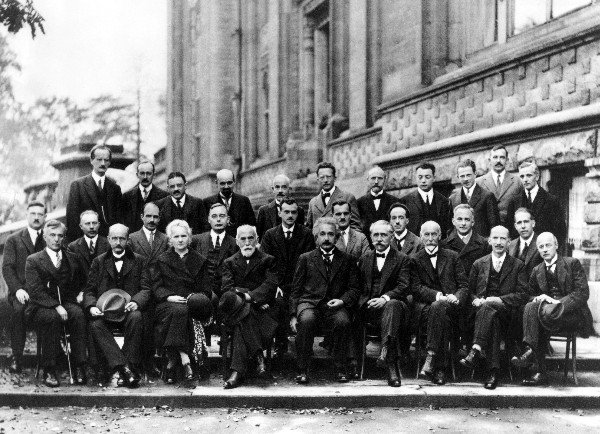Why aren't more girls going into science?
By Brianne Fagan.

This column by Brianne Fagan, a senior majoring in chemical engineering at the Colorado School of Mines, is a response to a recent New York Times column on women in science. It was prepared as part of a class on Explorations in Science, Technology, and Society. The class is co-taught by physics professor Lincoln Carr and Toni Lefton of the Liberal Arts and International Studies department. The course is offered through the McBride Honors Program.
During a class presentation about Kate Kirby, one of my peers brought up some statistics about girls in math and science while sharing her own motivations for pursing environmental engineering. During a related discussion, the two female Physics students both discussed their mostly positive experiences as women in the Physics Department at the Colorado School of Mines. The question always seems to remain, though: Why do so few girls pursue degrees in STEM (science, technology, engineering, and math) fields?
Well, I was perusing the articles on my New York Times app this morning, and what did I find?
Why Are There Still So Few Women in Science?
So of course I read it! It’s a bit long, so I’ll give you my short take-aways:
There are very few mentors out there encouraging women to go into science.
There is still so much unconscious bias within the minds of both males and females towards their female science students.
Culturally we start teaching children that scientists look/act a certain way (think TV show The Big Bang Theory).
And here is a great quote to sum up the piece:
As so many studies have demonstrated, success in math and the hard sciences, far from being a matter of gender, is almost entirely dependent on culture - a culture that teaches girls math isn’t cool and no one will date them if they excel in physics; a culture in which professors rarely encourage their female students to continue on for advanced degrees; a culture in which success in graduate school is a matter of isolation, competition and ridiculously long hours in the lab; a culture in which female scientists are hired less frequently than men, earn less money and are allotted fewer resources.
I agree with a lot of the conclusions brought up by this article. Our society doesn’t operate in a way that encourages females to get involved in math or science. I don’t know if you’ve heard of the books by Danica McKellar that try to get girl involved with math. These enrage my stats major roommate; she is appalled that we have to sell math as “quizzes and boy drama” in order to get girls to like math. I have to agree. We don’t make math books into sports magazines to get boys to invest in math.
My seventh grade science teacher decided that teaching meant writing a transparency of notes that he put up and made us copy down every day. That doesn’t get any kid excited. I honestly don’t remember a damn thing we were supposed to learn that year (but I can recall 6th and 8th grade science well because my teachers were awesome!). My middle school students had a math teacher for algebra who was kind of mean. He was a good teacher, but his strategy involved teasing them a lot. I know that only some of us were thirteen year old girls once, but there is nothing worse than being picked on and teased when you feel like the biggest pile of awkward in the world (trust me, my lovely male friends, female puberty sucks).
I believe (warning, Teacher Brianne is coming out) that the key to getting all students more into math and science is to start encouraging them in their math and science classes from an early age. You need to preform experiments with the kids and you need to give them positive feedback when they’re doing well. We need teachers at every level of education that look at the students and think about what that person needs to succeed. For some that is a joking attitude and telling them all the things they need to do better, and for other this is a sympathetic attitude and telling them all the things they did well.
I feel fortunate that my math and science teachers were kind and encouraging to me. I wouldn’t be at Mines if I had someone constantly reminding me about how much I screwed up. I feel fortunate that although Mines is emotionally challenging a lot of the time, it’s not trying to discourage any one gender more than the other. I feel fortunate that I’ve had bosses in my technical internships that choose me based on my skills, and still respected me as a human being. I don’t think every corner of STEM fields is riddled with gender bias/discrimination, but I do know that a lot of those corners need some work.
